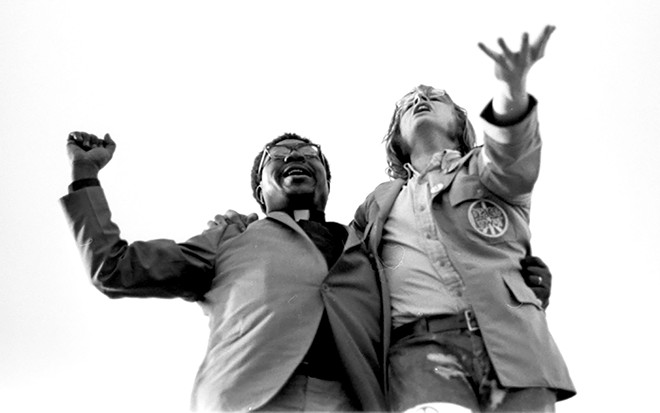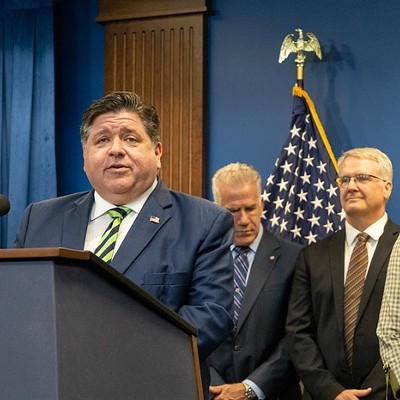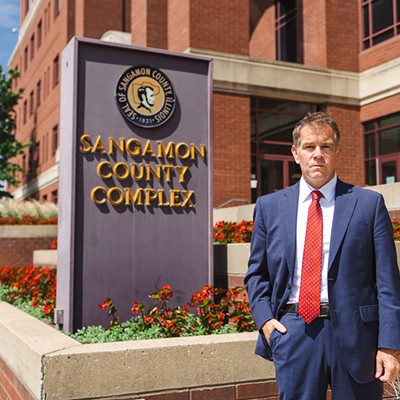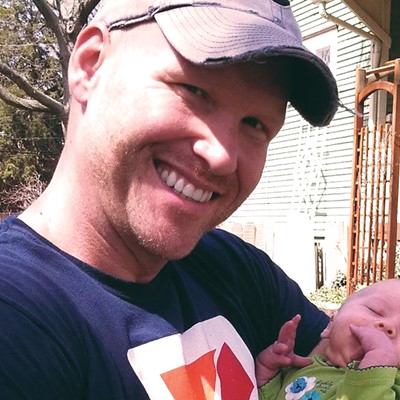Shortly before Dr. Martin Luther King's assassination in 1968, he began the Poor People's Campaign, which had a pronounced economic rather than strictly racial focus, taking aim at poverty across the United States as it affected not only African American but Native American, Latino, white and other communities unable to obtain adequate housing, food, health care and other essentials. The campaign included a peaceful march on Washington, D.C., followed by an extended, officially permitted, occupation of the National Mall, a tent community which was named Resurrection City.

Now a revived Poor People's Campaign is readying a new march on Washington, D.C., this coming Saturday, June 29, while the Abraham Lincoln Presidential Library and Museum (ALPLM) is coincidentally hosting the Smithsonian Institute's traveling "Solidarity Now!" exhibit documenting the events of 1968.
"Although we are the richest country in the history of the world, 800 people a day die in this country because of issues related to poverty," said Rev. Susan Phillips, pastor of Springfield's First Presbyterian Church as well as co-chair for the Illinois chapter of the Poor People's Campaign.
Today's Poor People's Campaign is a strictly nonpartisan organization which does not allow politicians or candidates for office to speak at any of its rallies or education sessions. "They can attend," said Phillips, "but the people who speak are the people who are most impacted by the damaging policies of our institutions. These are the people who work two or three jobs and still can't make ends meet because they're paid less than a living wage," Phillips continued, pointing out that while the campaign is not partisan it is decidedly political. "We say 'our votes are our demands.' We have a to-do list for any person who is elected to office regardless of their party. We want every elected person to work for the well-being of our entire country."
While King, along with the Southern Christian Leadership Conference, began the Poor People's Campaign, he was killed before the march took place, with his widow, Coretta Scott King, taking up the mantle to bring her husband's plans for the march and occupation to fruition. King's late-career shift of focus to economic issues had made the influential civil rights activist increasingly controversial, as his stance began to push against the constraints of America's capitalist system and mindset. His assassination came during a trip to Memphis, Tennessee, to support a strike by sanitation workers.
"Dr. King wrote a controversial speech which he never gave, although people heard tidbits of it," said historian Brian Mitchell, who is director of research and interpretation for the ALPLM. "One quote from it is, 'Have I integrated my people into a burning house?'" King had come to the realization that just because his efforts may have secured the Black community voting and civil rights on paper, without economic power there was little hope of bettering any group's condition in America. "He began to believe that improving conditions for, not only Black people, but all poor peoples of the U.S. required some degree of shared wealth. And this made him, in the minds of some people, very, very dangerous."
As for the 1968 Poor People's Campaign as carried out after King's death, Mitchell stated bluntly that it just didn't work. "They got to D.C. and built these makeshift tents with wooden platforms and there were thousands of people living inside this tent housing while the encampment was there, which lasted approximately six weeks." The initial permit expired and when the campaign leaders tried to renew it they were denied. "Ultimately the police were sent in. So at first they were largely ignored and when they refused to go home, teargas was used and the peaceful protesters were forced out." Poignant footage, images and remnants of the ill-fated Resurrection City are on display in the ALPLM's exhibit.
In 2018, exactly 50 years after the initial campaign, the Poor People's Campaign was revived after a conversation between the Rev. Dr. William Barber, director of North Carolina's Repairers of the Breach, and New York City's Rev. Dr. Liz Theoharis, director of the Kairos Center. There are five pillars of the new campaign, as described by Phillips: The first is to eliminate poverty, "because poverty is a social structure. It exists because we create systems that allow poverty to happen"; the second is to address racism and other forms of oppression; the third pillar is to build systems that are environmentally sustainable, "instead of destroying the planet on which our life depends"; the fourth is to help create equal and affordable access to health care and education for everyone, "instead of access for some and not for others." The fifth pillar is addressing the commonly accepted "false moral narrative" that the world has always been structured unjustly and must remain this way and that violence is the best way to fix problems.
For more information on the current Poor People's Campaign, visit: https://www.poorpeoplescampaign.org/mm2024/
To sign up for the watch party at First Presbyterian Church this Saturday from 9 a.m. until 11 p.m., visit:https://shorturl.at/jgzAy
To sign up for the group visit to the ALPLM exhibit on Saturday after the watch party, visit:https://shorturl.at/ynmHy.
Scott Faingold is a journalist, educator and musician. He has been director of student media at University of Illinois Springfield, founding editor of Activator magazine, a staff reporter for Illinois Times and co-host of Old School Bleep, a music-centered podcast. He can be reached at [email protected]




















